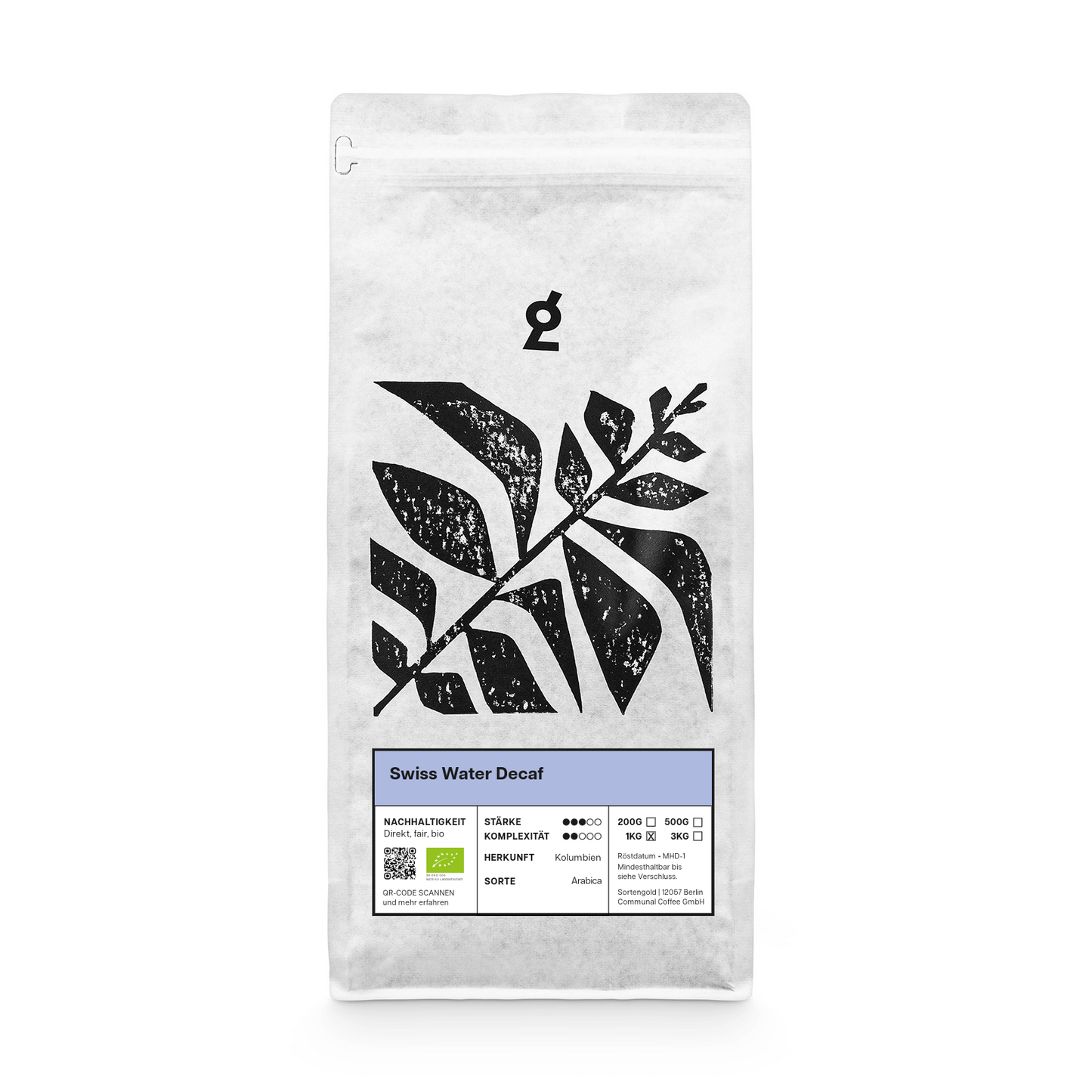Coffee is a daily pleasure for many people. But what do you do if you love the exciting aromas and full-bodied taste, but want to avoid caffeine? This is where the Swiss Water® process comes into play. It allows coffee beans to be decaffeinated gently and without any chemicals, without affecting the taste. In this article, we explain how the process works, why it is unique and what makes it so special.
What is the Swiss Water® process?
The Swiss Water® process is a method of removing caffeine from coffee beans. It is carried out completely without chemicals and uses only water, temperature and time. The natural taste of the coffee is retained. This process was developed in Switzerland, hence the name, and is particularly popular with people who value natural and environmentally friendly products.
How the Swiss Water® process works
The Swiss Water® process is easy to understand if you look at the individual steps. Here is a simplified explanation:
- Preparing the beans: The green, unroasted coffee beans are first placed in warm water. This opens the beans and the caffeine becomes soluble.
- Production of the coffee extract: In parallel, a special coffee extract is produced that contains all of the water-soluble components of coffee - except caffeine. This extract serves as the key for the next step.
- Caffeine removal through diffusion: The beans are placed in the coffee extract. Since the extract is already saturated with all the important ingredients, only the caffeine is extracted from the beans. All aromas and flavors remain in the beans.
- Filtration of the caffeine: The caffeinated water is passed through special filters that extract only the caffeine. The water is then reused, making the process resource-saving.
- Repeat until perfection: This process is repeated until less than 0.1% caffeine remains in the beans. After that, the beans are dried and ready for roasting.
Why is the Swiss Water® process so special?
- Completely chemical-free: While other processes use chemicals, the Swiss Water® process does not require any such additives. This makes it natural and safe.
- The taste is preserved: Since the aromas remain in the beans, the coffee tastes as aromatic and full-bodied as usual even after decaffeination.
- Environmentally friendly: The water used in the process is recycled, minimizing waste. Additionally, the entire process is energy efficient and sustainable.
- Certified quality: Coffee treated with the Swiss Water® process often carries organic or fair trade labels, making it a responsible choice.
Swiss Water® compared to other processes
| feature | Swiss Water® process | Chemical processes |
|---|---|---|
| use of chemicals | No | solvents such as dichloromethane |
| The taste | Almost unchanged | Can suffer |
| environmental pollution | Very low | Higher |
| Health Safety | Highest standards | Potential residues |
Frequently asked questions about the Swiss Water® process
- Does decaffeinated coffee taste different? No! With the Swiss Water® process, the taste is almost completely preserved. Many people don't notice any difference.
- How much caffeine remains in the beans? After the process, the coffee contains less than 0.1% caffeine.
- Is Swiss Water® coffee more expensive? Yes, due to the complex process it is often a little more expensive, but the quality justifies the price.
- Where can you buy Swiss Water® coffee? Many organic markets, coffee roasters and online shops offer it.
- Is the process sustainable? Absolutely! The Swiss Water® process is considered one of the most environmentally friendly decaffeination processes in the world.
- Why use water instead of chemicals? Water is natural, safe and preserves the flavors of the coffee beans better than chemical alternatives.
Conclusion
The Swiss Water® process is the ideal method for anyone who wants to avoid caffeine without compromising on taste. It combines the latest technology with an environmentally conscious approach and delivers decaffeinated coffee of the highest quality. With every cup, you are also contributing to a more sustainable world.
Sources:
- https://www.swisswater.com/
- https://sca.coffee/
- Ramalakshmi, K. and Raghavan, B. (1999) 'Caffeine in Coffee: Its Removal. Why and How?', Critical Reviews in Food Science and Nutrition , 39(5), pp. 441–456. doi: 10.1080/10408699991279231.



